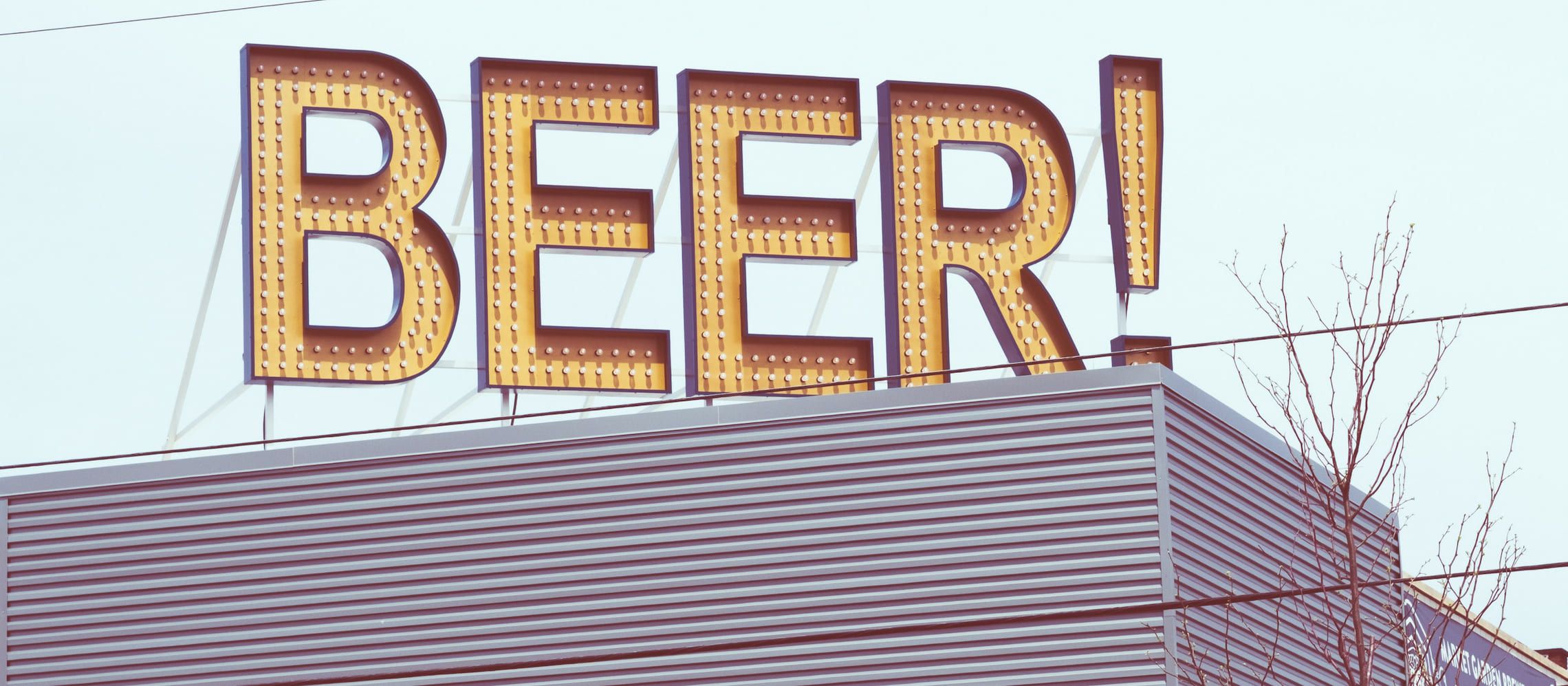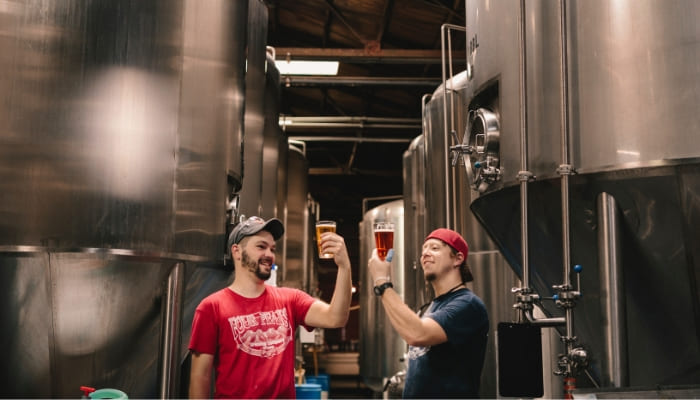Submission Deadline
28 February 2026
Judging
Date
23 March 2026
Winners Announcement
22 April 2026
28 February 2026
23 March 2026
22 April 2026

Facing up to venue closures as more people choose to drink at home rather than in pubs and bars… the market data signposts to counter these trends… and setting out some of the help that the breweries can provide.
Those in the UK industry will be aware that drink‐led venues continue to face considerable pressures, having declined by getting on for 20% in number over the last 5 years. Indeed, recent market research from CGA shows pubs and bars are closing at an average of 3 a day – and it’s a rate that’s accelerated across the country over recent times.

Whilst it’s the so-called ‘community pubs’ that continue to account for the majority of closures, there’s pressure in other hospitality areas, too. Not only are some bars struggling, but restaurant numbers have started to fall after years of growth, hit, like other sectors, by fierce competition and escalating costs, not to say changing consumer habits.
Whilst Government figures may show alcohol consumption overall to have risen, the issue for pubs and bars is that people are actually more likely to be drinking at home. This fact is underlined by the statistics from 2017 that show that, although overall beer sales rose, sales in pubs and bars fell by 2.4% from the previous year – the equivalent of an astonishing 88 million fewer pints.
Nielsen research also shows millennials are drinking less than previous generations, whilst Mintel research shows that drinking is no longer central when millennials meet up with friends: rather, it’s more about unique experiences – and new drinks.
However, it would be a mistake to see this purely as a doom and gloom scenario: there are a number of clues in the market data figures which show how pubs and bars may indeed be able to weather these market storms. It’s more about finding ways to diversify the revenue streams and broaden the trading windows to attract necessary investment to counter change and ride with the market dynamic, not rail against it.
So here are 15 ways in which breweries can provide help and support for their pubs and bars.
Breweries can,
1. Work with the ‘Britain’s Beer Alliance’ to lobby the Government to at least freeze, if not reduce, UK beer duty: this is currently 3 times the EU average - and 12 times higher than in Germany – with the rate now perceived as being exorbitant, affecting pricing at every level…
2. Be supportive of, and understand, the fact that pubs need to do more than just sell the beers, whilst bars need to look beyond simply selling (alcoholic) drinks, with breweries looking to do much more than simply sell the ‘same old’ beers and add to their support by expanding their horizons: as previously mentioned, this could be through the development of, and improvements in, current food offers…
3. Help pubs and bars develop well-executed food offers. These have shown that more than acceptable returns are possible, as have venues that add accommodation to their mix…
4. Reflect the clear trend towards premiumisation which show growing sales of craft beers and artisan spirits….
5. Help their pubs and bars to offer products that appeal to all customers: it pays – literally – for breweries, as much as landlords and venue management, to know their customers and avoid only appealing to a narrow audience: not everyone drinks only real ale or craft beers...
6. Work with pubs and bars so they keep their beers fresh by changing and/or rotating their beer menu on a regular basis – craft beer drinkers, in particular, look for updates (and any new beers is a perfect reason to issue a social media post)
7. Help create a beer list with the widest appeal: put simply, the best sales strategy is to offer a bit of everything, as well as pricing, it so it appeals to the widest audience…
8. Understand the power of design: in a bar or restaurant environment, menu layout and pricing is known to have a direct effect on sales, starting with how prices are set out – low-to-high pricing being a no-no…
9. Look to provide support for themed and experiential cocktail bars: in terms of the latter, helping put on group activities to provide new and different experiences (Mintel research suggests 22% of respondents want bars to offer some kind of activity).
10. Work with pubs and bars to help create and develop destination venues, providing consumers with something more than a simple place to get a drink – this links with developing the food/restaurant offer and adding accommodation into the mix...
11. Help ensure proper staff training: good wait staff represent the cheapest means to support a promotion, whilst in a bar situation this includes employing the right mixologists to ensure the quality of the cocktails...
12. Use the power of marketing to promote their beers in the venues where their products are found, as well as supporting events: the use of well-targeted social media is a powerful communications channel to promote quiz nights, happy hours, beer and food matching, and the like…
13. Promote their beers to the benefit of local pubs and bars by organising brewery tours and on-site beer tastings – this can be further developed into a taproom outlet to promote the whole range of the brewery’s products…
14. Embed themselves in their communities and develop their ‘persona’ with stories behind their products to add consumer appeal, emphasising the provenance of their beers and the use of locally-sourced ingredients. For example, this could relate to the hops used, which can work to communicate a sense of place – ‘terroir’ as winegrowers call it – because, like wines, beers from different places, whilst made to the same recipes and using similar ingredients, will reflect their origins and likely taste very different from each other. This makes particular sense when, according to recent research, more than 60% of drinkers care about where their beer is brewed…
15. Work with pubs and bars to help promote charitable causes, as well as working with others to address local community issues, sponsoring, amongst other things, local sports clubs, hospices or art projects to build trust with the local community and consumers – the local drinkers in the pubs and bars.
To sum up, breweries have a real role to play in the pubs and bars they own, as well as those to whom they simply supply products – it’s all about improving engagement with target market consumers, understanding what they want and reflecting this in what’s being provided. In what is a highly competitive marketplace, it’s all about getting the communication with consumers right, supported by the products and services consumers want.
Show your beers where it matters. Get your products tasted by top buyers and experts at the London Competitions — enter now.